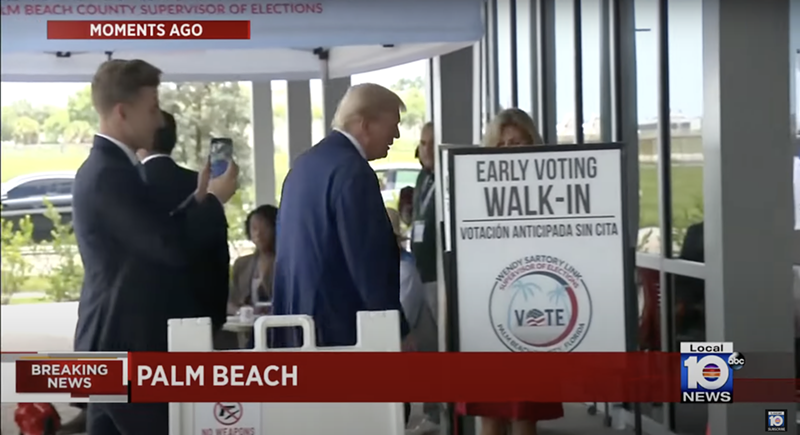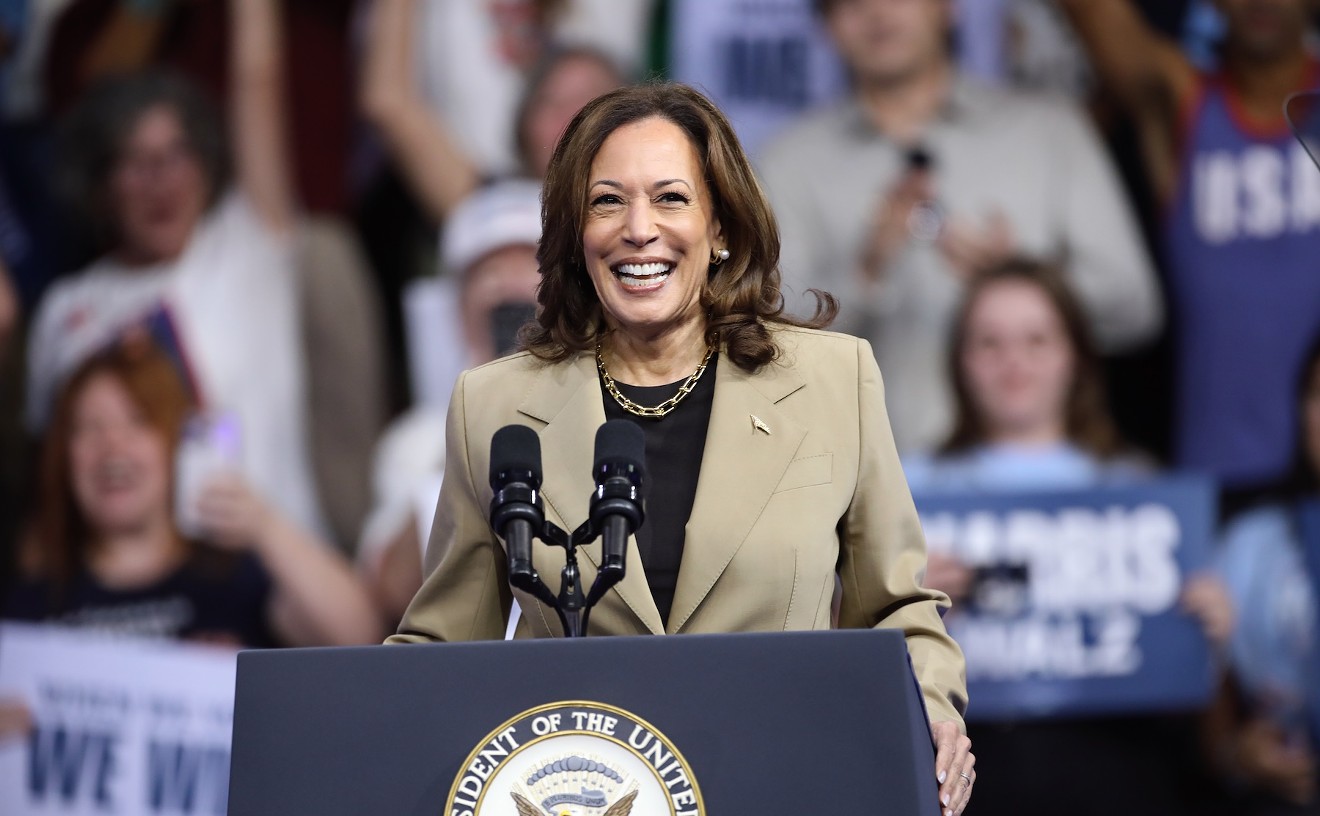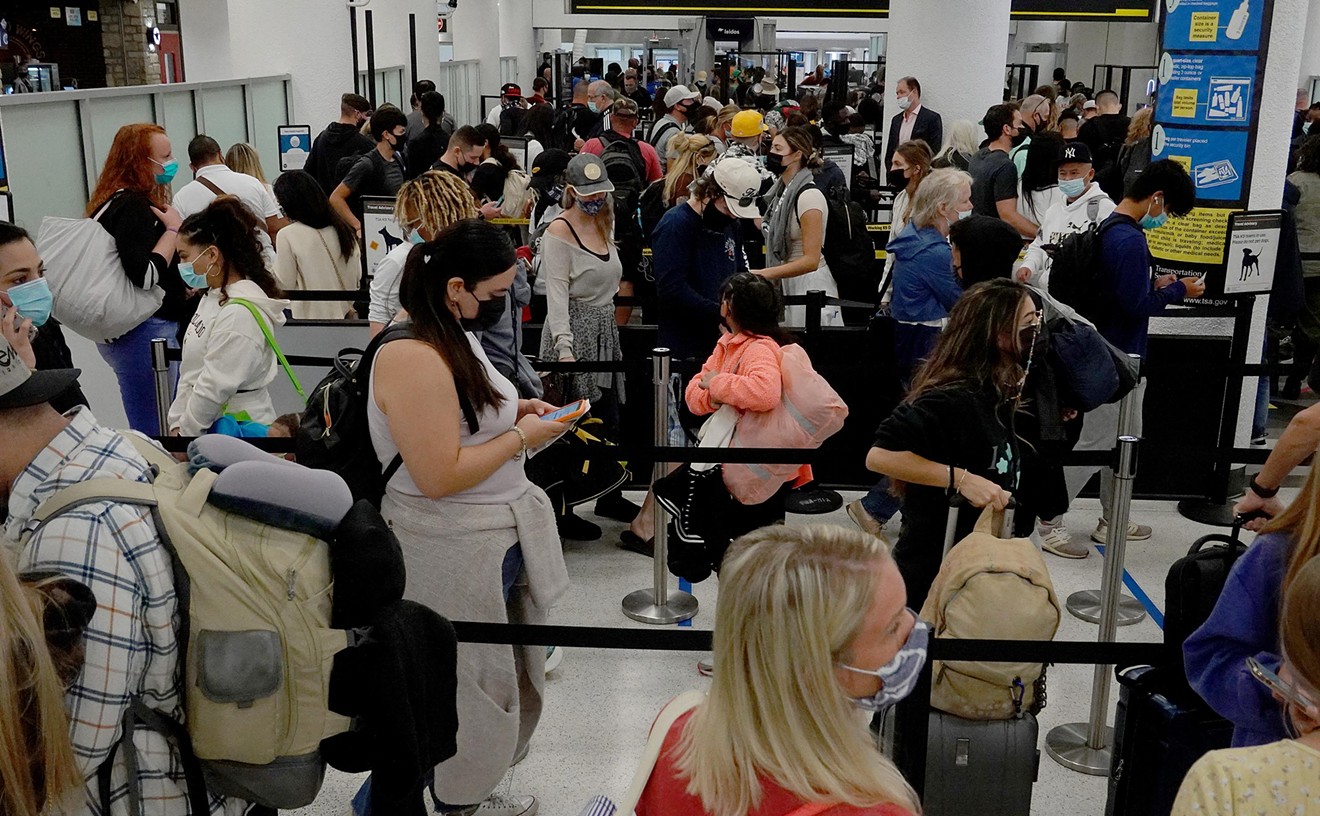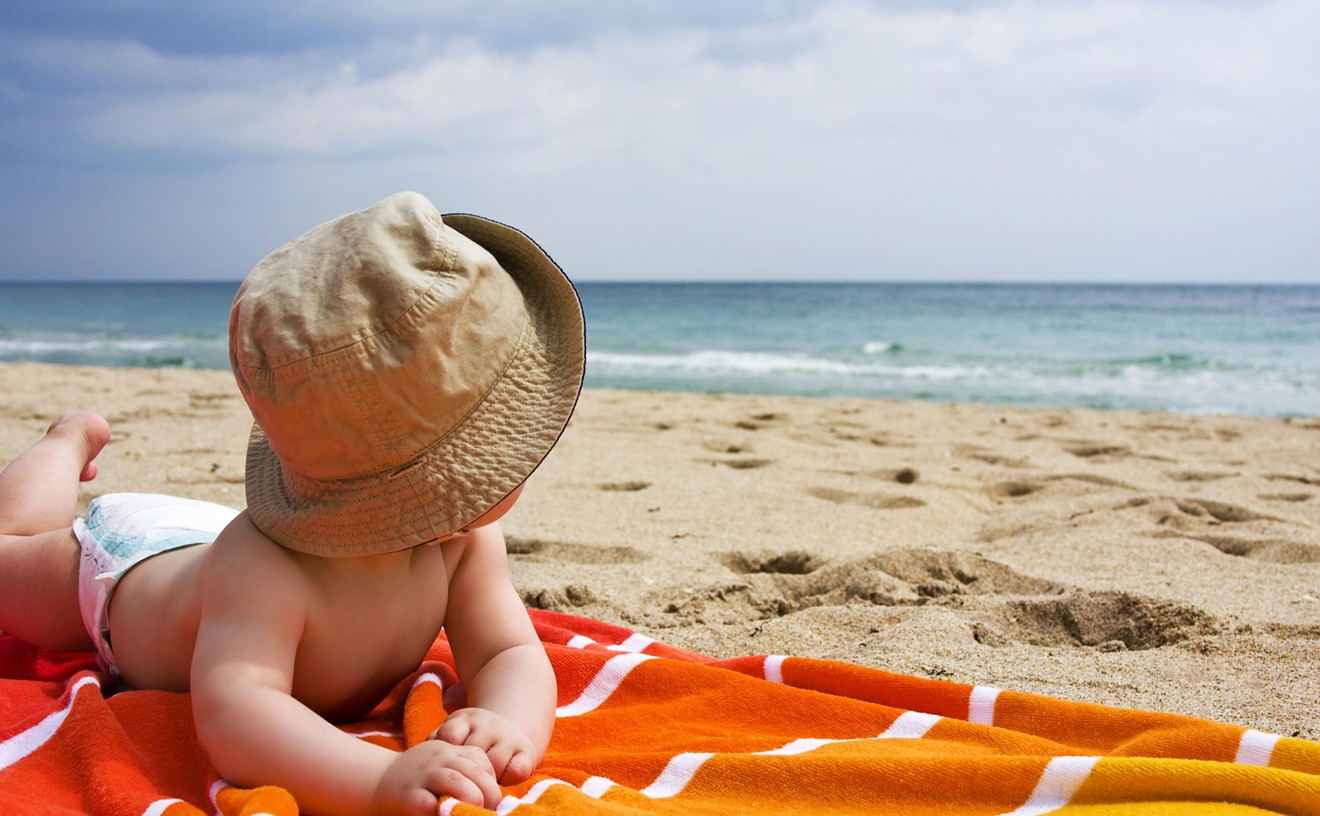Florida Gov. Ron DeSantis has long been criticized for making it difficult, if not impossible, for people convicted of felonies to vote in Florida.
Unless, that is, you are former president Donald Trump.
On Wednesday, Trump — who was found guilty earlier this summer of 34 felony counts while gearing up his 2024 presidential campaign — cast his ballot for the presidential primary election at a local Palm Beach County polling place near his home at Mar-a-Lago.
This obviously raises some questions: did Trump vote illegally? Will his vote count?
In Florida, voter eligibility for residents with out-of-state felony convictions hinges on their voting rights in the state where they were convicted, according to the ACLU. In this case, the state is New York, which has had a "simple, bright-line rule" since 2021: if you're not imprisoned, you can vote. Also in play is the issue of post-trial proceedings — a judge can withhold a conviction, for example, allowing defendants to keep their voting rights.
So, as Trump's case plays out in New York and he heads to the polls in Florida, has DeSantis reiterated his hardline stance about felon voting rights? Has he railed against liberal states and how their loose criminal justice policies may permit convicted felons to abscond to Florida to cast votes?
Not a peep.
In June, DeSantis instead took to social media to vocally back Trump and embrace the former president's right to vote in Florida hot off a felony conviction.
"Former President Donald Trump hasn't lost his voting rights in Florida. Rights are not removed in Florida where they haven't yet been stripped in the convicting jurisdiction," DeSantis said.
DeSantis suggested that if Trump had any trouble in the voting process, he would lend him a hand.
"Given the absurd nature of the New York prosecution of Trump, this would be an easy case to qualify for restoration of rights per the Florida Clemency Board, which I chair," DeSantis wrote on X, the platform formerly known as Twitter.
DeSantis has been uncompromising on the voting rights of convicted felons (other than Trump).
In 2019, DeSantis signed a controversial bill that required convicted felons to settle court fees and debts related to their past criminal case before their voting rights could be restored.
The governor was later sued in 2023 by voting rights group Florida Rights Restoration Coalition, which claimed that despite the 2018 amendment that lifted Florida's lifetime voting ban for people with felony convictions, state officials have continued to disenfranchise 1.4 million residents — around a quarter of the state's eligible Black voters.
The lawsuit claimed that DeSantis had led an aggressive campaign to sow confusion and fear among formerly incarcerated residents.
"Through this campaign, the defendants have created a climate of intimidation even among people who believe in good faith that they are eligible to vote: a fear that they may be criminally prosecuted if their belief turns out to be wrong," the lawsuit stated. "This effort, coupled with the earlier-created roadblocks to registration, has turned the simple act of voting into a complicated and risky venture in the eyes of those who were re-enfranchised by Amendment 4, as well as others who have been affected by the defendants' conduct."
DeSantis also made a spectacle of arresting more than a dozen former felons who allegedly cast ballots in the 2020 election despite having a disqualifying felony conviction.
In Florida, a person convicted of murder or a sexual offense is ineligible to vote unless the state's clemency board restores their right. For other felony convictions, a person is eligible to register and vote if they've completed all terms of their sentence — meaning, if they completed their time in prison, jail, or parole and have paid all fines, fees, costs, and restitution ordered as part of the felony sentence.
However, as previously noted by ACLU of Florida staff attorney Nicholas Warren, the state never created a centralized way for these people to figure out how much they owe — or if they owe anything at all.
"There is no simple way for a person who is coming out of their felony sentence to check whether they are eligible to vote," Warren told NPR. "And the rules are very complicated in Florida."
After a New York state court in May found Trump guilty of 34 felony counts of falsifying business records to cover up hush money payments to porn star Stormy Daniels — making him the first former president to be convicted of felony crimes — Florida's Republican governor decried the verdict.
"Today's verdict represents the culmination of a legal process that has been bent to the political will of the actors involved: a leftist prosecutor, a partisan judge, and a jury reflective of one of the most liberal enclaves in America — all in an effort to 'get' Donald Trump," DeSantis said.
At least one expert, Philip Padovano, an appellate lawyer and former judge for the First District Court of Appeal, has expressed doubts about whether Trump was legally allowed to vote in Florida in the August primary. Padovano told the Florida Bulldog he was "at a loss to understand where they are getting this concept of going by the laws of another state."
DeSantis' office did not immediately respond to New Times' request for comment.

Audio By Carbonatix
[
{
"name": "Air - MediumRectangle - Inline Content - Mobile Display Size",
"component": "19274298",
"insertPoint": "2",
"requiredCountToDisplay": "2",
"watchElement": ".fdn-content-body",
"astAdList": [
{
"adType": "rectangle",
"displayTargets": "mobile"
}
]
},{
"name": "Editor Picks",
"component": "17482312",
"insertPoint": "4",
"requiredCountToDisplay": "1",
"watchElement": ".fdn-content-body",
"astAdList": [
{
"adType": "rectangle",
"displayTargets": "desktop|tablet"
},{
"adType": "rectangle",
"displayTargets": "desktop|tablet|mobile"
}
]
},{
"name": "Inline Links",
"component": "18711090",
"insertPoint": "8th",
"startingPoint": 8,
"requiredCountToDisplay": "7",
"maxInsertions": 25
},{
"name": "Air - MediumRectangle - Combo - Inline Content",
"component": "17482310",
"insertPoint": "8th",
"startingPoint": 8,
"requiredCountToDisplay": "7",
"maxInsertions": 25,
"watchElement": ".fdn-content-body",
"astAdList": [
{
"adType": "rectangle",
"displayTargets": "desktop|tablet"
},{
"adType": "rectangle",
"displayTargets": "desktop|tablet|mobile"
}
]
},{
"name": "Inline Links",
"component": "18711090",
"insertPoint": "8th",
"startingPoint": 12,
"requiredCountToDisplay": "11",
"maxInsertions": 25
},{
"name": "Air - Leaderboard Tower - Combo - Inline Content",
"component": "17482313",
"insertPoint": "8th",
"startingPoint": 12,
"requiredCountToDisplay": "12",
"maxInsertions": 25,
"watchElement": ".fdn-content-body",
"astAdList": [
{
"adType": "leaderboardInlineContent",
"displayTargets": "desktop|tablet"
},{
"adType": "tower",
"displayTargets": "mobile"
}
]
}
]












